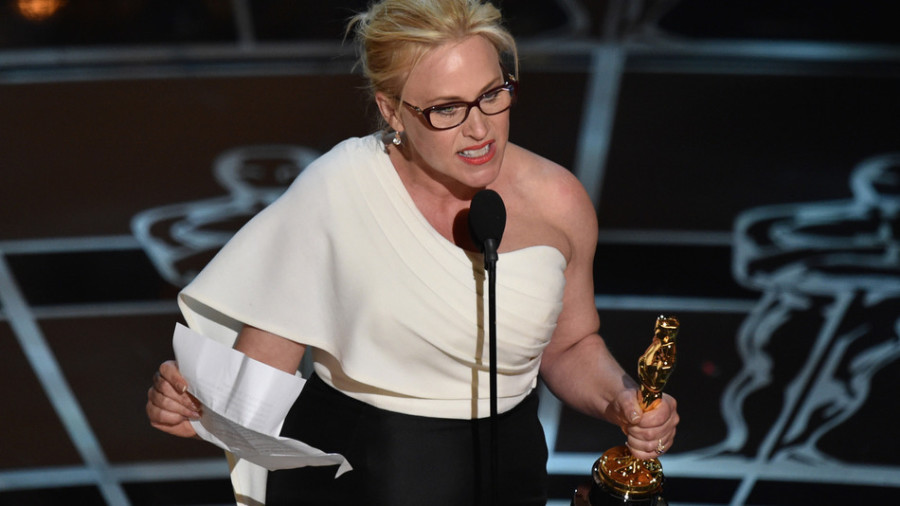Arquette’s Oscars misstep part of the bigger picture
March 9, 2015
Celebrities picking up pet causes is hardly a new phenomenon — just this fall Emma Watson gave a speech to the U.N. advocating for feminism and Angelina Jolie is well-known for her advocacy of children’s welfare. Occasionally, celebrities can stumble a bit when trying to bring awareness to their chosen cause, the most recent example being Patricia Arquette’s misstep at the 2015 Oscars.
Although Arquette’s call to arms during her acceptance speech was well-intentioned, if bland, it was her backstage comments after her Oscar win that “It’s time for all … the gay people and people of color that we’ve all fought for to fight for us now,” that struck a raw nerve.
“It treated them [women of color and LGBTQ women] as separate categories from women, which is problematic,” said Dr. Elizabeth Kissling, women’s and gender studies and communications professor. “And then to say that we fought for them was way more problematic because white feminists have historically done a bad job of that and are still atoning for that and still really working hard to do more intersectional feminism.”
It’s certainly easy to be quick to judge celebrities when they aren’t perfect, but occasionally we also need to cut them a little slack — no one would look good if every comment they ever made was recorded and shown to millions of people. However, the difference with Arquette lies in her response to the backlash. Rather than accepting that she had offended people, she refused to acknowledge the concerns that were brought to her, taking to Twitter and seemingly claiming her childhood in poverty as a lifetime of privilege-free existence.
“I don’t want to be too hard on her,” said Kissling. “It’s unfortunate that she doesn’t seem to, at least at this point, want to say ‘Oh, yeah, maybe I’m not showing as much understanding,’ but I also am imagining that she’s feeling pretty barraged by criticism of something that she meant to be a good act. But our intentions aren’t always enough.”
And while it is important to remember celebrities are people who are prone to mistakes just as much as the rest of us, it’s almost important to remember they have more influence than most and should be held to a slightly higher standard.
The fact of the matter is that we afford celebrities a platform from which to speak and spread their ideals, and we should hold them accountable for their mistakes just as we should hold each other accountable for our mistakes.
But celebrities have a special form of ethos that allows them very large platforms to speak from. Emma Watson, for example, gave her speech to the U.N. in the fall — a fairly lofty accomplishment for someone who is otherwise uninvolved in politics.
“What is Emma Watson’s ethos?” said Dr. Patricia Chantrill, chair of the Communications Department. “Well, she’s a young actress who’s probably fairly wealthy. What else is a part of her ethos that allows her to stand up in front of the U.N.? It’s her celebrity platform.”
However, while Arquette does have a celebrity ethos, she lacks any further ethos to allow her the kind of slack we might afford other celebrities who misstep in a similar way.
“So that’s again that kind of issue is that there was no organization behind her that she had agreed to be the spokesperson for,” said Maggie Crabtree, EWU English lecturer for the public relations series. “Those two gentlemen who spoke on the Selma score, somehow their legitimacy seemed more authentic to me.”
Although Common and John Legend, who won an award for their original song for the movie Selma, did not have an organization backing them either, they did come across as better-versed in their discussion, likely at least in part because they avoided stepping on the toes of anyone else. Had Arquette simply left her speech on stage and not made the backstage comments, she would not have come under fire.
“What she probably should have done was just not say anything more about it because she shouldn’t have been putting this on people, but own[ing] it herself,” said Chantrill.








